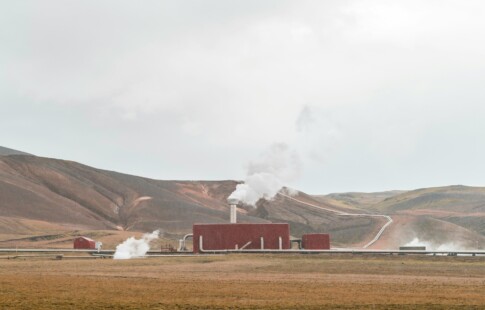
Why is Oil a Nonrenewable Resource?
We are reader-supported. When you buy through links on our site, we may earn affiliate commission.
Individuals are experiencing transportation limitations as oil and gas prices skyrocket. Russia’s war on Ukraine is depleting global oil supplies and creating distribution challenges. Consumers are straying away from fossil fuels to save money and reduce adverse environmental impacts.
Oil is a nonrenewable resource, which negatively affects ecological conditions. Mining, transporting and consuming oil causes surface-level and atmospheric pollution. Individuals may replace oil with renewable resources to conserve natural resources and the global ecosystem.
What is a Nonrenewable Resource?
Oil is an unsustainable resource because it is nonrenewable. Nonrenewable resources can be depleted and have greater negative environmental impacts.
On the other hand, the Earth naturally replenishes renewable resources, which reduces adverse exploitation effects. Environmentalists rely on the sun, wind and water to produce endless energy supplies. Natural weather patterns can support power development without degrading the atmosphere. Renewable energy is significantly more sustainable than oil because it produces zero emissions.
After exploring the features of renewable resources, individuals may question, “Why is oil a nonrenewable resource?” Oil is depletable because it comes from a finite liquid mixture of hydrocarbons beneath Earth’s surface. Individuals may never replenish oil wells, which limits future generations’ abilities to access the resource.
Where is Oil Found?
Oil comes from wells, which tap into reservoirs. The reservoirs look like regular rock formations where tiny droplets of oil reside. America is one of the world’s top oil mining countries, with 31 states extracting the nonrenewable resource.
Drilling is an expensive practice, so oil manufacturers must have a deep understanding of the area. Professionals use geophones to calculate how much oil is inside subsurface rock formations. The technology measures soundwaves to determine how porous each rock is.
Wells can produce oil for between 20 and 40 years. Drilling professionals can no longer use wells after they deplete their resources. Draining wells of their oil creates adverse environmental effects.
The Oil Industry’s Environmental Impacts
Extracting oil from historic rock formations generates and displaces pollution. Mining for oil creates surface-level and atmospheric pollution. Consumers process oil through a combustion process to produce energy.
Individuals power their vehicles, light, heating and cooling systems, medical devices and other appliances with oil. Producing energy from fossil fuels creates greenhouse gas emissions, which degrade the environment. Oil is one of the leading causes of the enhanced greenhouse effect.
The effect increases evaporation and causes adverse biodiversity impacts. Oil extraction practices also cause water pollution from spills. Broken and mismanaged rigs may leak tons of oil into local water sources.
Polluting aquatic ecosystems with oil can cause biodiversity loss. Mining also degrades natural spaces by distributing soil conditions and habitats. Environmentalists must distribute low-impact energy sources to consumers and improve global sustainability levels.
What Should We Replace Oil With?
Individuals can minimize their reliance on oil by adopting renewable energy supplies. They may power their homes, vehicles and appliances with solar power to reduce pollution. Solar power is renewable because it relies on photovoltaic (PV) cells to convert non-depletable sunlight into electricity.
PV panels work by absorbing solar radiation and breaking electrons from atomic bonds. The movement of electrons creates a flow of emission-free electricity. Individuals can also replace their fossil fuel reliance with wind power.
Wind power is another renewable energy source supporting a sustainable grid. Consumers can acquire emission-free power from turbines, which convert wind into electricity. Wind power is less accessible than solar for residential consumers.
Another renewable residential power source is geothermal. Geothermal energy systems rely on Earth’s natural temperature differences to produce power. Individuals can install geothermal energy systems in their backyards to access sustainable electricity.
Are Renewable Resources Lucrative?
Many energy professionals are unsure of renewables’ compatibility with power grids. They believe replacing oil with renewable energy will negatively impact the economy. Environmentalists are challenging the theory by identifying the cost-efficiency of renewables.
Researchers calculated over 62% of renewable supplies were cheaper than oil in 2020. Replacing fossil fuels with wind, solar and geothermal power may also create more green jobs.
The clean power sector employed nearly 777,000 individuals in 2018. Researchers expect the number of green jobs to increase in the coming years. Replacing nonrenewable energy sources with sustainable alternatives may benefit the environment and economy.
When Will America Decarbonize its Energy Grid?
America is moving away from its oil reliance toward clean energy. Professionals are using bioenergy and renewable technologies to support the transition. The Biden-Harris Administration has plans to develop a decarbonized energy grid in the coming decades.
Decarbonizing the power grid requires a mass increase in renewable energy production. Shifting away from nonrenewable energy sources can impact ecological, economic and human health conditions.
Share on
Like what you read? Join other Environment.co readers!
Get the latest updates on our planet by subscribing to the Environment.co newsletter!
About the author

Jane Marsh
Starting from an early age, Jane Marsh loved all animals and became a budding environmentalist. Now, Jane works as the Editor-in-Chief of Environment.co where she covers topics related to climate policy, renewable energy, the food industry, and more.





